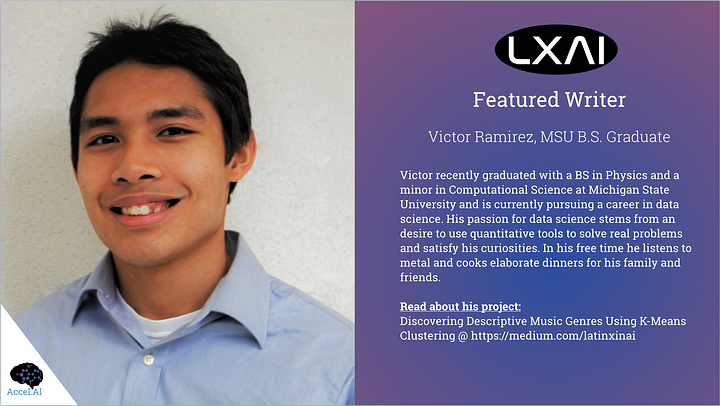Lessons Learned From Surviving the Post-Undergrad Job Hunt
Dear recent grads and those in college,
Unless you got mad connections, are that mythical post-grad already with 2 years experience somehow, a savant of sorts, or in that top 1% of the talent pool, the post-college-grad unemployment experience can be a hellish and demoralizing experience, with the uncertainty of your future leading to persistent questioning of the worth of your college career. At least it was for me.
I anxiously checked emails every hour every work day from 9–5. It feels like you’re in a constant state of being left ‘on read’, except sometimes you’re not even afforded the respect of being read. I dreaded 5 PM each workday for it painfully reset the corporate clock — and thus the timer to realistically hope for a response grinds to an agonizing halt.
Now I can’t help but be excited about my career, and I don’t think I’d be so appreciative had I not taken some gut-punches throughout my journey.
I wrote this post in part as an exercise in reflection & catharsis, and in part to possibly help those who are in the same position. Here’s what I learned after several months of job hunting.
Use This Chance To Finally Orient Your Career
Up until graduation I’ve been following the assembly line that the education system tries to pass everyone through through. Most major decisions that will decide my near future have been permutations of the same thing. Having been groomed throughout school to go to college, college was inevitable. Then came the time to choose a major. But it turns out nobody cares what you studied in undergrad so long as you get that degree. This sense of certainty didn’t prepare me for the gaping hole that lied ahead.
Nobody told me I was approaching the most chaotic, non-linear part of my life. I had been married to the idea of being a PhD physicist doing cutting edge research, and it seemed like going to grad school was the default decision to make for a while. Given the space to reflect back to my career decisions up to this point then seeing where that’s nudging me led me to an important realization: yes, I was married to the idea of being a physicist, but boy do I hate the everyday practice of it. Investing this time now to be honest with where I saw myself in the future may have steered me away from an alternate universe where I hate what I do and realized I could have chosen a much truer path. Indebting yourself in lies will force you to pay it back later with interest.
If you realize that where you’re headed post-grad isn’t going to lead to where you actually want to be in 5, 10 years, then congrats, you’re ahead of the game. Some people don’t figure this out until they’re it’s too late. The time invested may be the best investment you can make right now, so use it wisely. And you’ll probably have a lot of time anyway (sorry, but more on this later), so you may as well use it.
Lesson: Plan deliberately and honestly for the future.
Growth Is More Meaningful Than Outcomes
This is a counter intuitive mindset and one that I struggled to believe in. After battling everyday to get a damn job, I felt entitled to be rewarded with, well, a damn job, and fast. After all, school had trained us into expecting gratification if we just do the work. This time, you don’t know when your efforts will be rewarded.
It’s irresistible, even seductively logical, to treat the job search as a binary success/fail system: If I get an interview, great, I have a shot at a job. If I don’t get an interview or an offer by Friday, I failed. Cue the timer until Monday. This overly simplistic way of viewing this situation only led to a cycle of frustration.
I started valuing my personal growth when I worked on my first independent data science project. Seeing the progression of my work right before my eyes made me feel like I was actually going somewhere, and that I was one step closer to becoming a data scientist. Sure, I was still unemployed, but hey I created something! Once I learned to compare myself to where I was before, rather than what I could be, it put my mind at ease.
Lesson: Take each step of improvement as a success, regardless of the outcome.

Enjoy Your Free Time While It’s Here — You Might Have More Than You Think
In college, I barely had any free time. A day without school related work was rare. After graduating, things are much different.
With the job hunt and subsequent tumbleweeds in full-force, I let my lack of successful outcomes get to me. The waiting game became brutal without other things occupying my time. The natural response was for me to ‘learn harder’ and sacrifice even more of my time. The time I spent working towards positioning myself to get a job had nearly monopolized my waking hours. While my tireless work towards achieving my goal felt noble, it didn’t make for a compelling existence.
I didn’t expect to have so much free time so indefinitely. Knowing this, I would have told my past self to plan for it and embrace sooner. Getting your first real job can be freaking hard. I won’t tell you to travel and that everyone should travel because I’m not naive enough to think everyone can afford that luxury. Revive some old hobbies that previous commitments robbed from you or develop some new ones. Anticipate that your jump into the real world may take several months. Don’t let the newly freed up time you’ve earned to be taken up by worrying.
Personally I took this time to step my cooking game up. My resume may have gone through dozens of shredders, but at least I learned how to roast the hell outta pork!
Lesson: Don’t let the job search consume your life.
Rejection: It Ain’t Personal, Kid
Applying for jobs are a different beast than applying for a school. The process is less personal, and chances of getting a hit are much lower, so be prepared for some rejections.
Deep down I took each rejection as a personal failure, a message that I wasn’t good enough to even be a data scientist, and the entry-level gates were only open to those with non-entry-level experience. The job pool must be swimming with these candidates that were all one step ahead. And I can’t help but take it personal; after all I’m putting forward a culmination of years of hard work and countless waking hours of studying my ass off. But think about it: recruiters spend on average of 6 seconds on a resume. Could you even define yourself in 6 seconds? When’s the last time you made a lasting first impression on someone in 6 seconds?
You can put in as much work as you want becoming a perfect candidate, but at the end of the day, the other side has to look at your resume. The job matchmaking equation is full of unknown variables that there’s no point stressing about factors out of your control. Learn how to take some punches or else you’ll get knocked out early in the match.
Lesson: Learn how to handle rejection. Chances are you’ll get a lot of them.
It Pays To Be Stubborn As Hell
Part of why my job search dragged on for so long is because I was so damn stubborn about what I wanted. Before graduating, I had received an offer for a position that was tangentially directed towards my goal of breaking into data science. It was incredibly tempting, but in the end I had to reject it. I was afraid of being locked into a path that didn’t feel right. It was an eerily familiar feeling when I started doubting that physics was the right path for me. Most of all, I couldn’t help but gather real data about the market and my worth, even if it risked a long period of unemployment.
Sure enough, I got my data. That data came in the way of rejections, non-reponses, some honest-to-goodness humbling from people in the field, and a Burtch-Works survey that estimated that 91% of data scientists had an advanced degree. It turns out nobody wanted to hire an undergrad and no real experience in data science to be a data scientist.
Being a contrarian, I used that data as fuel to motivate myself to prove the data wrong, or at least become an outlier (which is ironic coming from someone who’s current job is built upon the accuracy of data). Getting a position in data science didn’t seem all that unreasonable either; the skills needed to be a data scientist can be learned online, and I was fortunate to have learned some of them already.
Many months later, I’m relieved to see that risk pay off. I’m not suggesting to never settle for anything less than that dream offer from Google. Instead I’m suggesting to have a reasonable, calibrated goal then giving yourself a tangible path to get there. Compromising on that goal may lead to short term gain but lead you astray in the long run. Give yourself a few chances before really going back to the drawing board. And your chances will only increase with more tries. It’s probability!
Lesson: Staying true to your goals can pay off in the long run.
Looking Back, The Struggle Was Worth It
My college career was peppered with classes where I struggled all semester only to get a mediocre grade and no useful knowledge to take home. This wasn’t the case with my journey to my career.
With the wounds from the job hunt still relatively fresh, and being a month into a new job, I can say in this weird perspective that the frustration of it all was totally worth it. It’s impossible to see that light at the end of the tunnel, because you won’t know it until you get there, or when you’ll get there especially as someone who’s never been there before. If only I could tell my past self during that painful job search that he’s on the right track, to stop being so frustrated at factors beyond control, to stop tying his pride & career worth to his inability to achieve my loft ambitions right away, to assure him that yes, you will get the career you desire and to stop dismissing messages like “the first job is always the hardest”, “you’re learning some valuable lessons” and “it’ll be worth it” as empty platitudes, because they’re all true.
I look forward to going to work everyday. The problems I have to solve each day are engrossing and I often lose myself in my work. I enjoy being around my coworkers. I learn new things each day. Most of all, I’m excited for my future career and future life. And I wouldn’t appreciate these all as much if I didn’t go through a struggle.
—
I’m no expert at this life thing, but learning these lessons made me more equipped with the real world than my gullible new grad self from months ago. I hope that in some weird way, this blog post helps those struggling new grads and somewhat-lost college students prepare for life after college. I know I could have used it.


